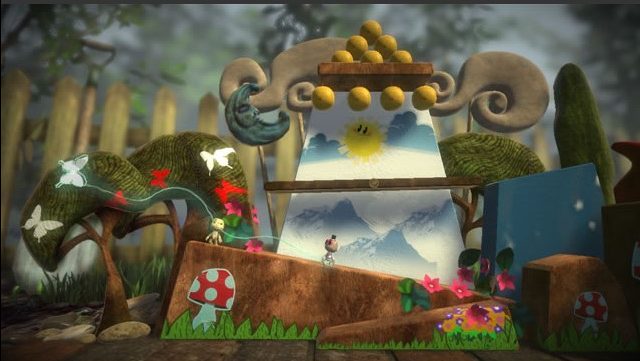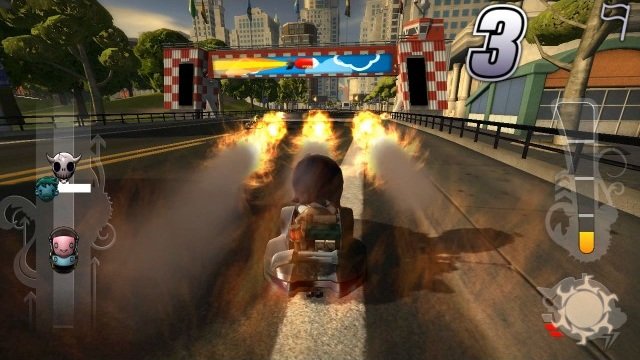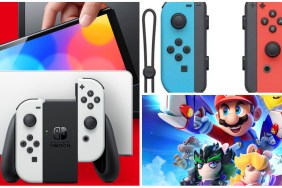It has now been a decade since Media Molecule and Sony released LittleBigPlanet into the wild on October 27th, 2018. It was marketed as an innovative platformer that allowed for infinite replayability thanks to a robust creation toolset and an online infrastructure that made it easy for players to share their levels. The mantra of “play, create, share” really was a perfect encapsulation of the unique experience that players were getting.
Unlike most games, LittleBigPlanet relied on its users to create the bulk of the experience. Sure, there were a few hours worth of pre-made levels that came on its Blu-ray disc, but it really needed players to latch onto the creation aspect for it to be a success. Thankfully, that’s exactly what happened. It wound up being a huge success both critically and commercially, as it sold well over 4 million copies in addition to winning several game of the year awards.
Sony and Media Molecule’s gamble had paid off, and they wound up releasing a ton of DLC packs that ranged from adding new functionality to pure cosmetics after release. It also led to an excellent sequel, portable versions on both PSP and Vita, and eventually a PS4 version that was handled by developer Sumo Digital. All of these titles were successful, although there has been diminishing returns as the core game hasn’t changed and some of the original’s weaknesses (such as the floaty platforming) began to become more noticeable with each iteration.
LittleBigPlanet‘s Innovations

Regardless of one’s thoughts on the series as it has continued, the brilliance of the PSp3 original has to be recognized. While LittleBigPlanet wasn’t the first game to be marketed around user creation (games like RPG Maker have done this for years on PC), it was the first mainstream title to really give players an incredible amount of tools that were as accessible as they were flexible. Not only could people create levels that showcased difficult platforming, but they were able to tell stories and go beyond the genre that LittleBigPlanet was intended to be. Players created incredible Rube Goldberg machines and makeshift fighting games. The creativity of the community was incredible, and it was all made possible due to the tools provided to them.
Another key to its success was due to the game’s great online community features. After all, what good are the best fan-made levels if they can’t be found by other users? Players were able to sort through the game’s millions of levels by using search terms and a solid tagging system, they could view levels that were picked via Media Molecule’s own curation, and they were able to follow curators themselves if they liked their levels. Throw in the game’s four-person multiplayer mode, and players were guaranteed a different experience every time they booted up the online mode.
This was really the first time a game had connected millions of creators, and it made for a really fantastic experience when LittleBigPlanet first launched. Every single day hundreds of new levels were being made, so understandably things got a bit difficult to keep track of. Thankfully, the studio put together a fantastic web portal (one that the series still uses to this day) that allows players to find content on their phones or computers. It was easy to queue levels up on a web browser and then play them the next time they logged in. While website integration is somewhat common in games now (with many multiplayer titles using them), it was a very different story in early 2009.
Are We Still Seeing Its Impact Today?

The immediate impact for LittleBigPlanet was easy to spot. Sony used its “play, create, share” tagline for their own racing game, ModNation Racers, and thought they could recreate the same success while also creating an arcade racer that could rival Mario Kart. It didn’t quite live up to what it was being marketed as, but it showed that the formula could be applied to other genres (something Sony’s San Diego Studio did once again with 2012’s LittleBigPlanet Karting). Indie games also followed suit as Trials, Planet Minigolf, and Joe Danger were structured in a similar way.
LittleBigPlanet‘s long-term influence on the gaming industry is a complicated one. It certainly didn’t change the entire landscape like some thought it would at the time, but it did prove that giving communities proper creation tools (even on consoles) was a worthwhile investment for developers. It takes a lot for a title to get an active creation community, but if the gameplay is top-notch, the creation tools are sound, and there’s an easy way to distribute created assets, then players will gladly expand a game’s lifespan with their own work. Most recently, Super Mario Maker followed that framework (although its distribution of user content wasn’t ideal), but the same idea can also be seen in plenty of other titles that allow for user creativity (even if it’s something more limited like WWE 2K19‘s mostly aesthetic creation suite).
Of course, if there’s going to be a natural evolution on the ideas seen in LittleBigPlanet it will probably show itself in Dreams. Media Molecule has been working on their most ambitious creation title to date for several years, and they’ll have a chance to lead by example once again. Ultimately, LittleBigPlanet‘s legacy might not be the games it inspired but what future projects it allowed its studio to do due to its commercial success.








